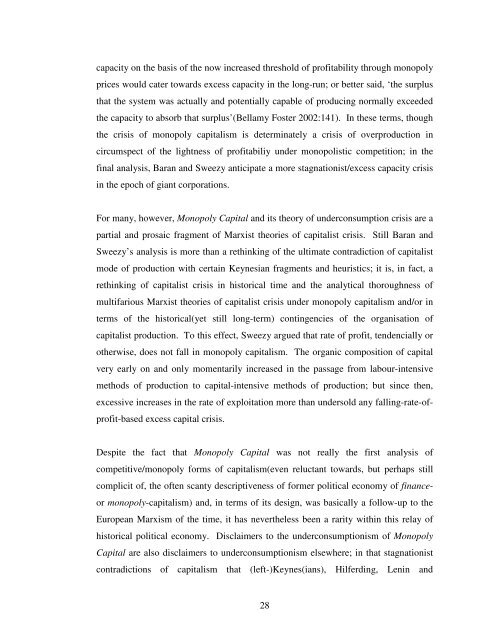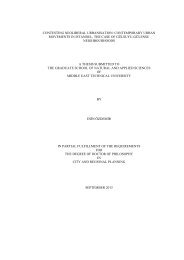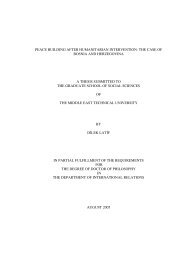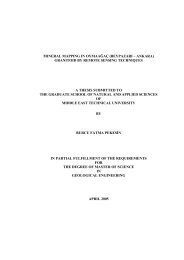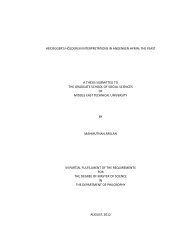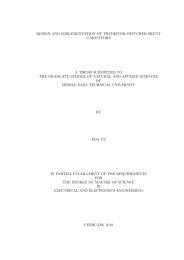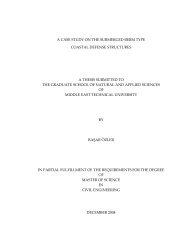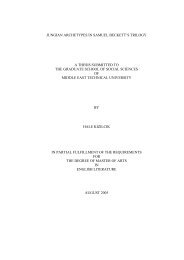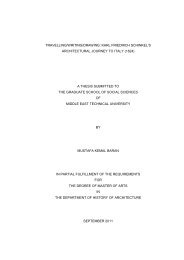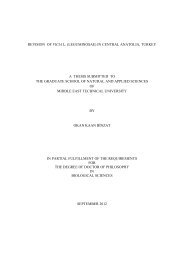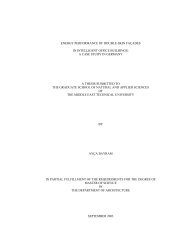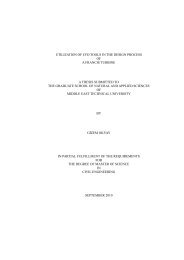View Original - Middle East Technical University
View Original - Middle East Technical University
View Original - Middle East Technical University
You also want an ePaper? Increase the reach of your titles
YUMPU automatically turns print PDFs into web optimized ePapers that Google loves.
capacity on the basis of the now increased threshold of profitability through monopoly<br />
prices would cater towards excess capacity in the long-run; or better said, ‘the surplus<br />
that the system was actually and potentially capable of producing normally exceeded<br />
the capacity to absorb that surplus’(Bellamy Foster 2002:141). In these terms, though<br />
the crisis of monopoly capitalism is determinately a crisis of overproduction in<br />
circumspect of the lightness of profitabiliy under monopolistic competition; in the<br />
final analysis, Baran and Sweezy anticipate a more stagnationist/excess capacity crisis<br />
in the epoch of giant corporations.<br />
For many, however, Monopoly Capital and its theory of underconsumption crisis are a<br />
partial and prosaic fragment of Marxist theories of capitalist crisis. Still Baran and<br />
Sweezy’s analysis is more than a rethinking of the ultimate contradiction of capitalist<br />
mode of production with certain Keynesian fragments and heuristics; it is, in fact, a<br />
rethinking of capitalist crisis in historical time and the analytical thoroughness of<br />
multifarious Marxist theories of capitalist crisis under monopoly capitalism and/or in<br />
terms of the historical(yet still long-term) contingencies of the organisation of<br />
capitalist production. To this effect, Sweezy argued that rate of profit, tendencially or<br />
otherwise, does not fall in monopoly capitalism. The organic composition of capital<br />
very early on and only momentarily increased in the passage from labour-intensive<br />
methods of production to capital-intensive methods of production; but since then,<br />
excessive increases in the rate of exploitation more than undersold any falling-rate-of-<br />
profit-based excess capital crisis.<br />
Despite the fact that Monopoly Capital was not really the first analysis of<br />
competitive/monopoly forms of capitalism(even reluctant towards, but perhaps still<br />
complicit of, the often scanty descriptiveness of former political economy of finance-<br />
or monopoly-capitalism) and, in terms of its design, was basically a follow-up to the<br />
European Marxism of the time, it has nevertheless been a rarity within this relay of<br />
historical political economy. Disclaimers to the underconsumptionism of Monopoly<br />
Capital are also disclaimers to underconsumptionism elsewhere; in that stagnationist<br />
contradictions of capitalism that (left-)Keynes(ians), Hilferding, Lenin and<br />
28


